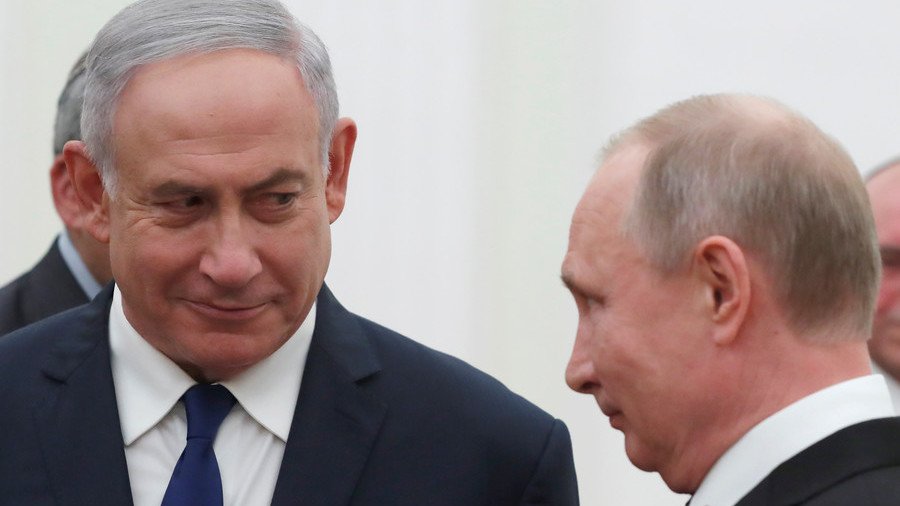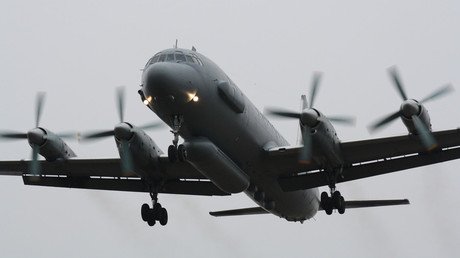Russia’s S-300 delivery shows Israel who’s in charge, but not aimed at hurting relations – analysts

Russia’s decision to boost Syrian air defenses in response to the downing of an Il-20 plane amid an Israeli raid is meant to sting, but not pose a serious threat to Israel’s national security, experts told RT.
Last week, a Russian Il-20 electronic warfare plane with 15 crew on board was shot down off Syria’s coast by a Syrian anti-air missile fired in response to an Israeli air raid. The raid targeted the Latakia province, which houses a Russian airbase.
Russian MoD on measures they take in Syria after Il-20 downing - WATCH STATEMENT https://t.co/j7mTRXNhuSpic.twitter.com/Kp1qbuThOm
— RT (@RT_com) September 24, 2018
Moscow accused Israel of failing to warn the Russian military of its impending attack in time to move the landing aircraft out of harm’s way. On Monday, the Russian military said they would boost Syrian air defenses in several ways to prevent similar incidents in the future.
“It was inevitable that at some point [Israel] would cross that line in its special relationship with Russia and would go a bit too far,” said Beirut-based journalist Martin Jay.
“The deal that [Russian President Vladimir] Putin gave to Israel was incredible. It [not only] allowed Israel to make air strikes with impunity across the country on targets that it believed to be Hezbollah weapons factories or Iranian military installations.”
Russia had also promised to keep pro-Iranian militias away from Syria’s border with Israel and froze a planned delivery of an S-300 long-range air defense system to the Syrian armed forces. This deal has now been unfrozen and is to be completed within two weeks, Moscow has announced.
“I think all bets are off now. Russia is showing Israel who is in charge and that it won’t take any more nonsense,” Jay told RT.
The deployment of the S-300 would reduce Israel’s ability to strike targets in Syria, although how much would depend on the number of batteries and the skill of the crews that would man them, said Nikolay Surkov, a senior researcher at the Moscow-based International Institute for World Economy and International Relations. Should Israel take risks or use more costly weapon systems, it may be able to conduct air strikes in Syria even after the planned upgrade, he said.
“They will have to use more assets, use armed drones and cruise missiles as opposed to fighter jets,” he said. “At least that’s what they told me when we discussed a possible delivery of the S-300 a few years ago… Of course this would be more difficult, more costly and more risky.”
The Russian expert believes that Israel may tolerate losses during sorties in Syria up to a point, possibly even ramping up attacks by way of retaliation, as was the case with the loss of a fighter jet in February. The worst-case scenario would be a full-blown air war in southern Syria not involving Russia directly.
“Russia has made its response and showed Israel how displeased it is. But Russia and Israel are partners, and neither side wishes to endanger this partnership. I believe a way forward that would satisfy both parties would be found. The Israelis would be more cautious in the future while Russia would refrain from further escalation,” Surkov predicted. “At the moment we don’t have a confrontation here, just mutual complaints.”
Similar messages, which signal Russia’s willingness to prevent the conflict with Israel from spiraling out of control, came from Moscow after the Defense Ministry’s statement. The Kremlin stressed that the measures taken by the military are not aimed at any third parties while the Foreign Ministry said Russia’s relations with Israel are too “massive and comprehensive” to be significantly hurt by the fallout from the Il-20 incident.
But Jay, the Lebanon-based journalist, pointed out that Israeli Prime Minister Benjamin Netanyahu may be limited by pressure at home in how he can deal with the situation.
“He has been resolving all the allegations of corruption through his political fortitude. He is doing really good at the moment, but this could be a game changer,” he said.
If you like this story, share it with a friend!














